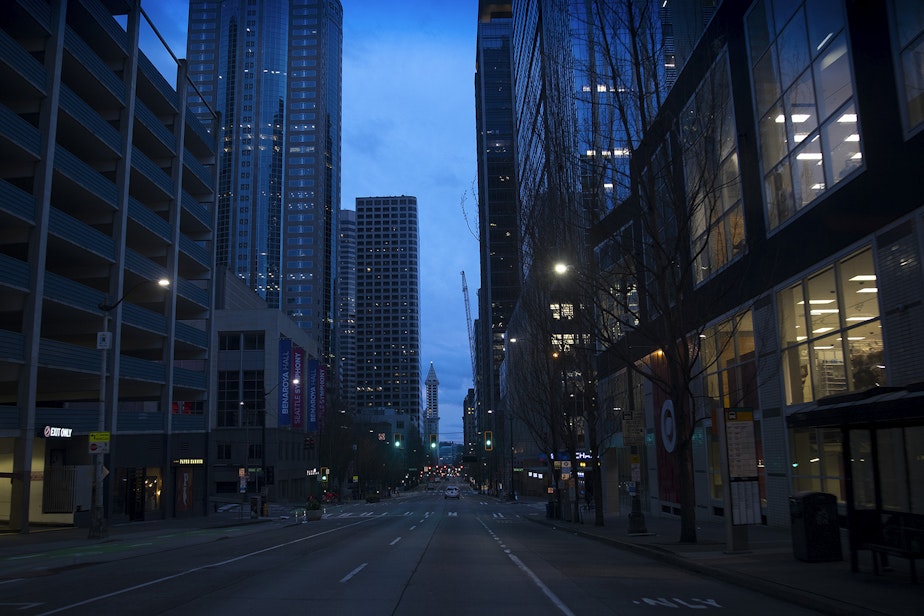4 new coronavirus cases at Seattle-area homeless shelters

There are now four confirmed cases, in four separate shelters.
That news has some shelters in the area on lockdown, and others on edge.
The Union Gospel Mission locked down all five of its shelters because a resident of one of them tested positive last week. Staff members move back and forth among the organization’s shelters, so a two-week quarantine meant all five shelters needed to be locked down.
A shelter spokesperson declined to say whether that lockdown would need to be extended if additional residents test positive in coming days.
Many homeless shelters in the area have worried about the prospect of an outbreak.
“The big worry [is] that it could be transmitted pretty quickly through our clients before anybody really knows it’s happening,” said Dan Malone, the executive director of the Downtown Emergency Services Center, another of the largest shelter providers in the Seattle area.
Sponsored
“By and large, the people we serve are people with pretty profound, disabling conditions and lots of underlying health problems,” he said. “We’re just extremely worried that, once it starts to penetrate the population we serve, it could spread rapidly, and it could have very severe effects.”
So far, DESC’s shelters have no confirmed cases.
“We’re knocking on wood so hard whenever we say this our knuckles are getting bloody,” Malone said.
Malone said he’s sending anyone with Covid-like symptoms to one of King County’s quarantine sites until results come back, but he’s concerned the county could run out of those beds soon.
Malone said he’d like to move everyone in DESC’s shelters out of shared spaces and into their own hotel or motel rooms, so he doesn’t have to worry about widespread transmission.
Sponsored
He said he believes there are enough open hotel rooms, since tourism is down in the Seattle area; it would just be a matter of money and a willing hotel owner.
In the meantime, his staff has moved the shelters’ most vulnerable residents into hotel rooms and spaced beds farther apart.

